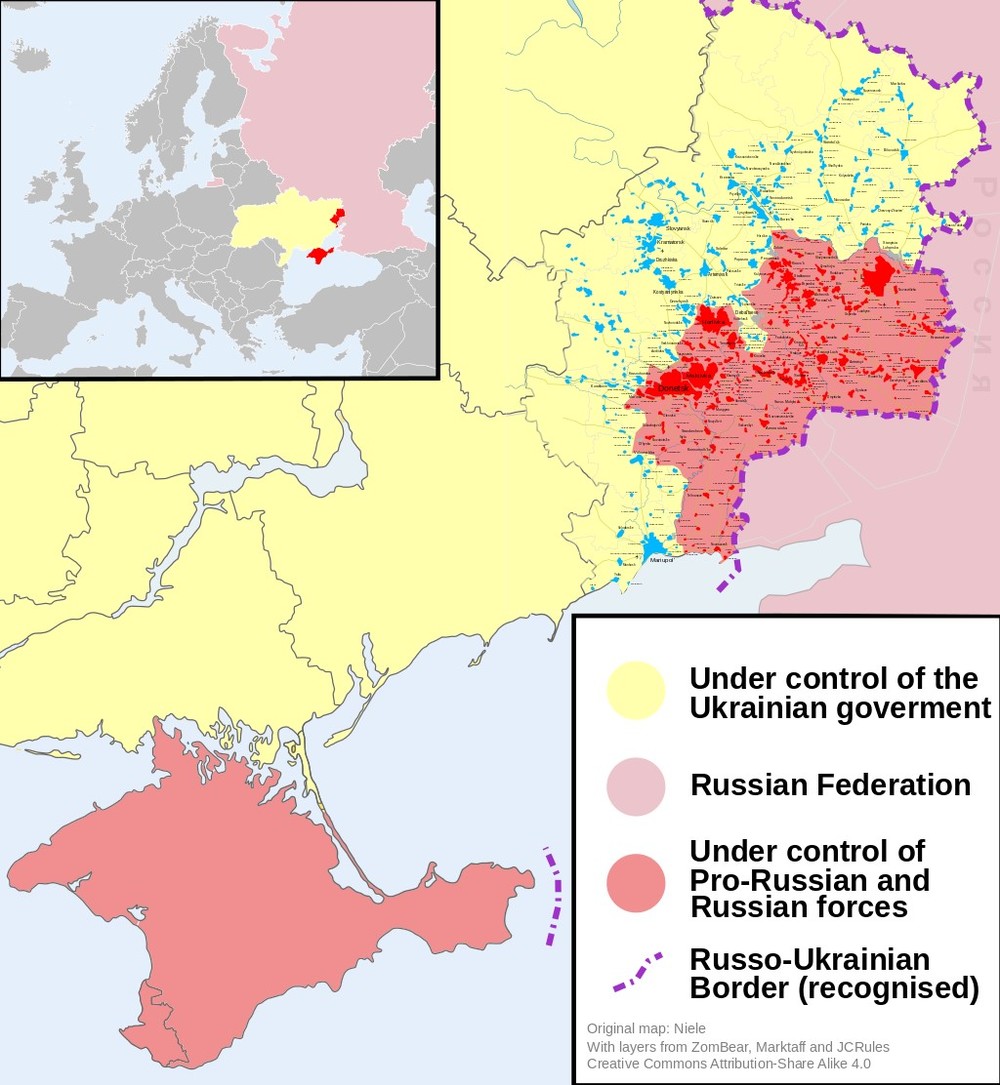Anno 2020, end of conflict in Donbas constitutes one of the key political priorities of Ukrainian ruling elites. Diplomatic measures are important, albeit they must be followed by practical and comprehensive steps supporting actors on the ground. Peace process will be successful and conflict prevention solutions sustainable under the conditions that the local communities, starting from the frontline, can embrace an inclusive community-building model, founded on dialogue and non-violent communication. Their resilience to withstand polarization and ability to reach compromise focusing on a win-win scenario for actors involved are important in making sure that a relapse into conflict will not happen.
The start of the armed conflict in the Donbas region of Ukraine in 2014 resulted in the increased civic activity of the citizens which led to the establishment of new civic initiatives and civil society organizations. CSO’s grew and developed, learning on the go, with limited resources. Furthermore, decentralization reform and territorial amalgamation gave local authorities more opportunities and responsibilities whereas they are often lacking skills to deal with the latter. Many people, including activists and those representing local authorities, are willing to transit to a more democratic and constructive way of interaction, but often don’t know how to do this.
In the context of the above, civic change agents in Eastern Ukraine (along the frontline in particular) in many cases struggle to effectively cooperate with authorities to address local challenges. There is a lack of trust and no practical experience in how to find a constructive way of interaction. Activists in the region have over the past five years taken over some of the services that authorities failed to provide (e.g. assistance to IDP’s). The latter see it as a way to delegitimize them resulting often in distrust instead of cooperation between authorities and CSO’s. For authorities operating under condition of conflict, cooperation with civil society is not a priority. On the other hand, both CSOs and local authorities have difficulties to express their needs in a constructive way and have their voice be heard on the level of national politics, and are not able to successfully advocate for their interests to be included in national policies
PAX wants to bring together CSOs to share their experiences and learn about each other’s strengths, thus being able to form a stronger regional network and to streamline their work better. Next to the work with CSOs, PAX intends to build the capacity and create an exchange network for elected local officials and municipal staff, focusing among others on more effective cooperation between municipal staff and local CSOs and activists so that they are able to develop joint initiatives to tackle local challenges.

Activities & Results
Planned activities:
- Needs assessment;
- Profiling individual needs of each community;
- Scenario mapping demonstrating the likely implications of policy decisions on (potential) conflict resolution steps;
- Targeted capacity development;
- Networking and advocacy meetings and workshops;
- Strategizing sessions;
- Tailored counselling and training;
- Study visits;
- Promotion of dialogue and non-violent communication in community building and conflict resolution;
Challenges
In most of the mentioned conflict areas, the (military, political and other) role of Russia is clearly visible and significant. What is of interest to PAX is not only the analysis of the reasons for and factors behind this role but rather how the governments and societies concerned have been dealing with this influence, and what effect their strategies have had on the conflict dynamic and mutual perceptions of the parties or groups involved. In other words: in a context of open adversity and support for breakaway regions by Russia, what can governments and civil society do to find durable solutions?
Contact
Andriy Korniychuk, Programme Manager Eastern Europe & Eurasia, korniychuk@paxforpeace.nl




